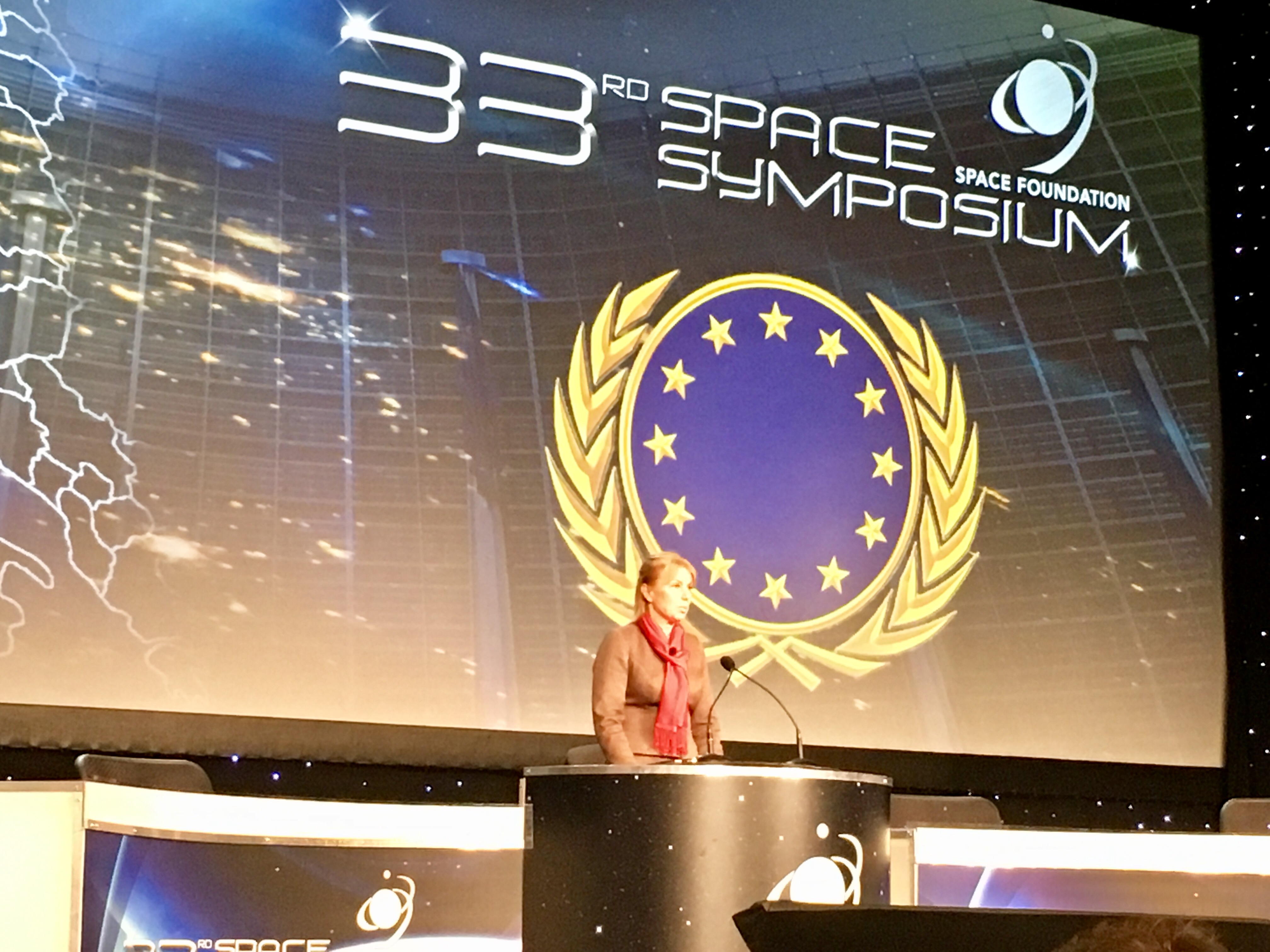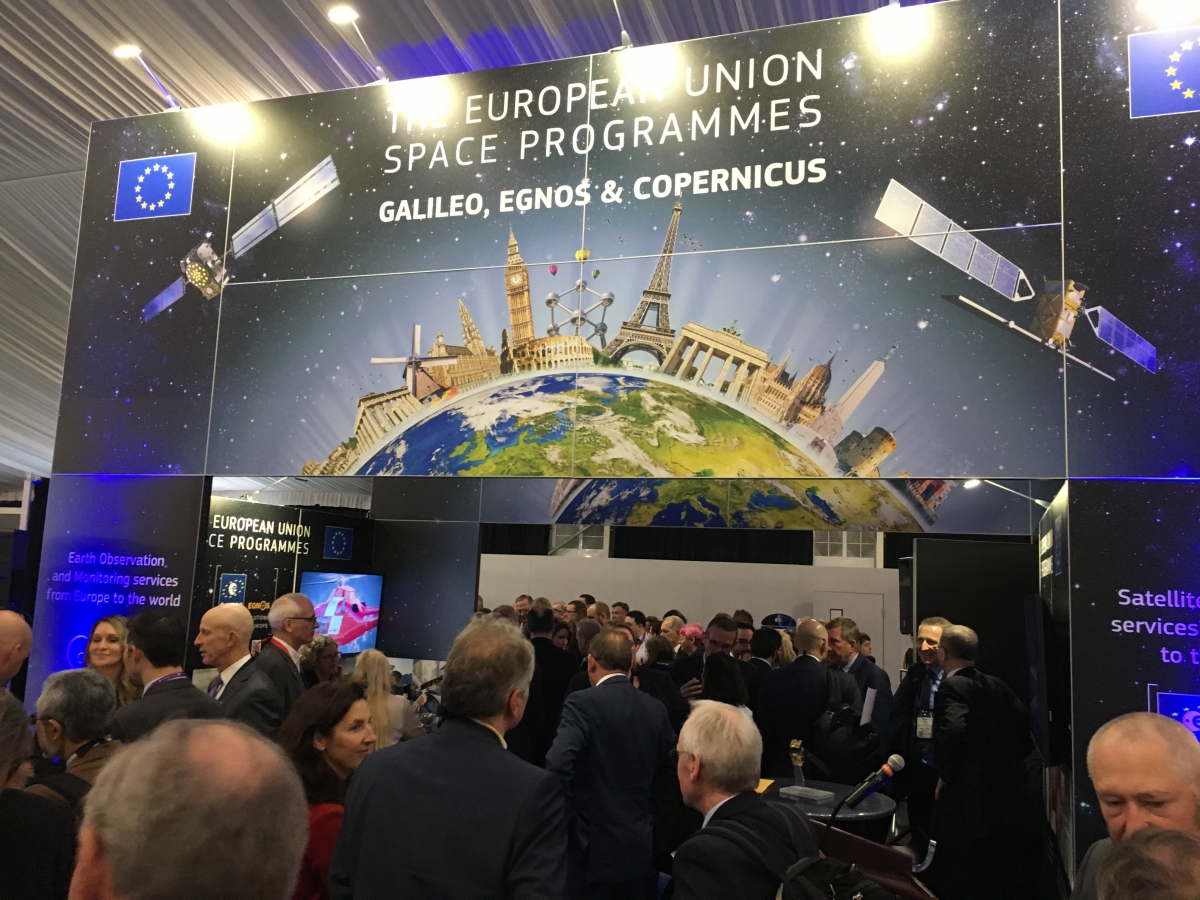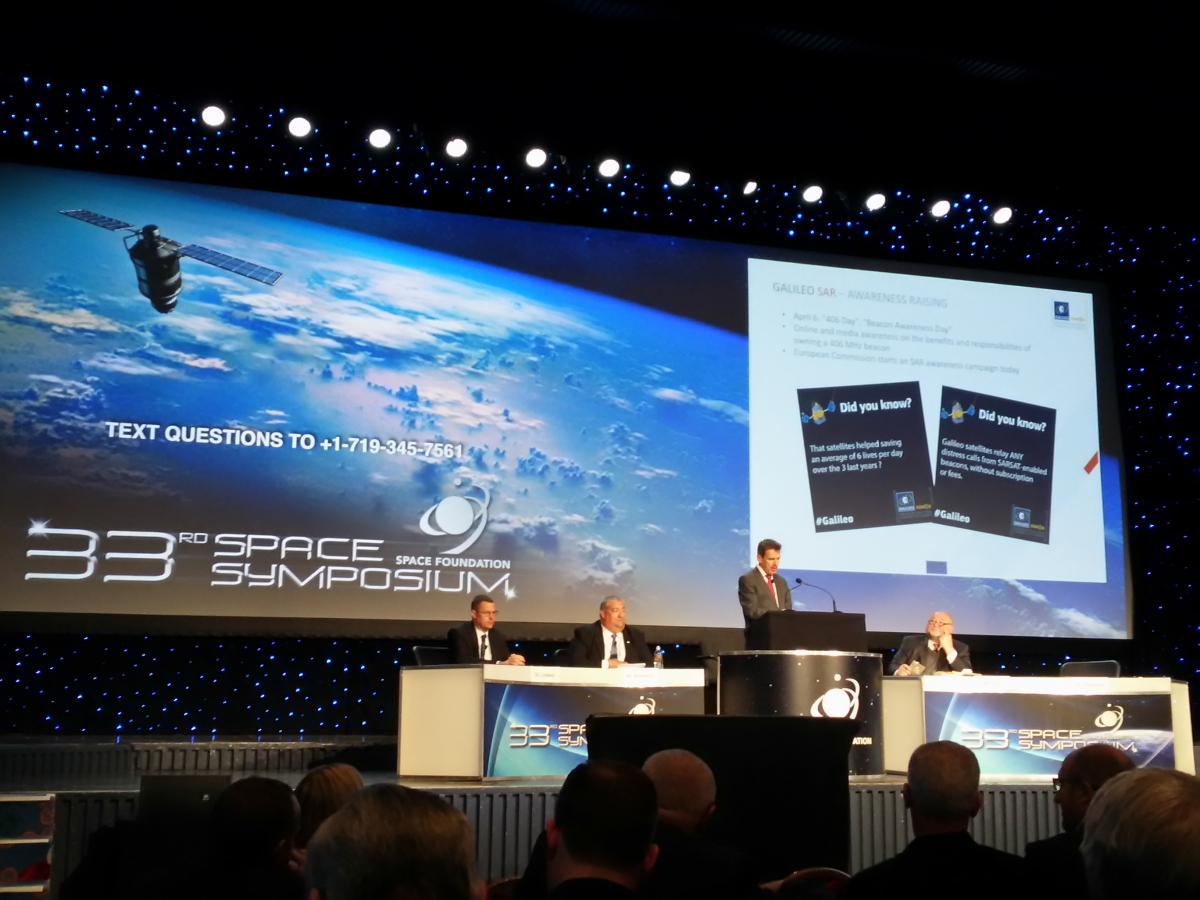For the first time, European Union officials presented keynote addresses at the world’s premier space conference as progress of the EU’s flagship space programmes – Galileo, EGNOS and Copernicus – puts the EU firmly in the club of global space service providers.
The premier space event in the world was held last week and, for the first time, the European Union (EU) Space Programmes were an important part of the agenda. Held in Colorado Springs, U.S.A. (3-6 April), the four-day space conference featured more than 10,000 attendees, 180 exhibitors and space, government and defence officials from more than 30 countries. In addition to EU member states, notable countries outside of the United States attending the international event included China, Russia, South Korea and Japan.
the European Union (EU) Space Programmes were an important part of the agenda. Held in Colorado Springs, U.S.A. (3-6 April), the four-day space conference featured more than 10,000 attendees, 180 exhibitors and space, government and defence officials from more than 30 countries. In addition to EU member states, notable countries outside of the United States attending the international event included China, Russia, South Korea and Japan.
On behalf of the EU, the European Commission and the European GNSS Agency (GSA) took centre stage to communicate the progress and next steps of Galileo, EGNOS and Copernicus. In addition to notable presence throughout the speaker agenda, the EU was represented at the Symposium with an exhibition stand where it hosted a well-attended ‘meet and greet reception’ on 4 April. EU Commissioner responsible for space, Elżbieta Bieńkowska, was present to officially welcome the many visitors.
The European Union: a new strong player in the global space club
On Wednesday morning, 5 April, EU Commissioner for Internal Market, Industry, Entrepreneurship and SMEs, Elżbieta Bieńkowska, become the first European Commissioner to address the Space Symposium. In her remarks, Bieńkowska declared that space matters for Europe, as it is now the second space power in the world.
“We are delivering on clear priorities,” said Bieńkowska. “Galileo went live last December and Europe has now joined the club of providers of global navigation services. In 2016, we launched six Galileo satellites that built on the six the year before. Today, 17 leading chipset companies that represent more than the 95% of global supply produce Galileo-compatible products. We are ready to grasp the full opportunity of space, not only for economic returns, but also for a better world.”

An open house ‘meet-and-greet’ reception at the EU Space Programmes exhibition stand reinforced the message that Galileo, EGNOS and Copernicus are operational and open for business.
A Space Strategy for Europe
Bieńkowska noted that Galileo’s significant 2016 milestones were a turning point toward its full operational status by 2020 – making now the right time to launch a Space Strategy for Europe. “First, we want to maximise the benefit of space for our society and the economy, by creating a dynamic and attractive market for space base applications and services,” she said. “Second, we want to foster a competitive and innovative European space sector, a ‘European new space’ approach. We want to embrace a new way of thinking, technological innovation and promote the emergence of dynamic European eco-systems of space start-ups. And third, we, for the first time recognise that space is a strategic asset and a central element of Europe's strategic autonomy. Europe must ensure its own security.”
In support of the Space Strategy for Europe, Bieńkowska announced that 350 million euro will be invested over two years in R&D projects that contribute to developing Europe's excellence and expertise.
Galileo: Helping to save lives
As one of four panellists invited to discuss maritime domain awareness on 6 April, European Commission Galileo Program Director, Matthias Petschke conveyed both the technological progress and subsequent human life benefits surrounding Galileo’s search and rescue service (SAR). SAR comprises two components: an automatic forward link distress alert, plus a unique return link alert (available end of 2018) that informs the sender that their message has been received.

European Commission Galileo Program Director, Matthias Petschke reviewed how the Galileo Search and Rescue service (SAR) is saving lives and making maritime search and rescue operations more efficient.
“The increased positioning accuracy provided by Galileo has reduced the time it takes to detect a person lost at sea or in the mountains from three hours to just 10 minutes after the distress beacon is activated. Meanwhile, localisation of the distress beacon has improved from 10 km to less than 5 km,” said Petschke. “The net result of the SAR improvements is that more lives are saved and it’s making search and rescue operations more efficient for emergency responders thanks to the reduced time to acquire a signal.”
In addition to Bieńkowska and Petschke, on 4 April, GSA Executive Director, Carlo des Dorides presented a Tech Track keynote address on the latest technology trends effecting the use global navigation satellite system information. European Commission (DG GROW) Deputy Director General, Pierre Delsaux also provided the closing keynote address on 3 April, at the Space Generation – Fusion Forum, a two-day event held just prior to the Space Symposium that offered university students and young space professionals the opportunity to engage and learn from today's industry leaders.
Media note: This feature can be republished without charge provided the European GNSS Agency (GSA) is acknowledged as the source at the top or the bottom of the story. You must request permission before you use any of the photographs on the site. If you republish, we would be grateful if you could link back to the GSA website (http://www.gsa.europa.eu).